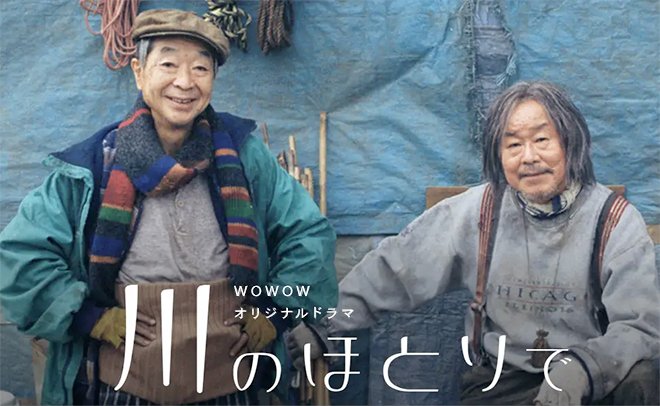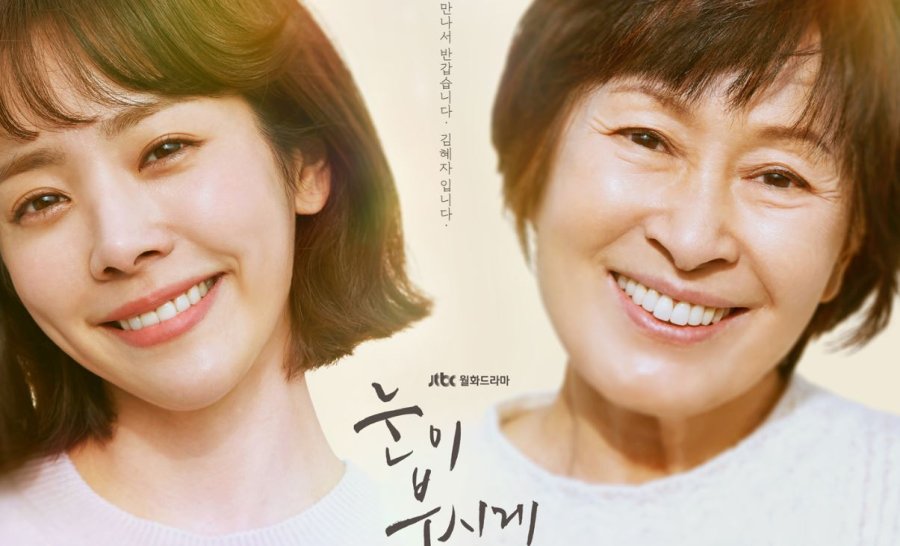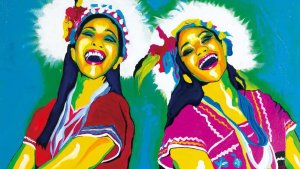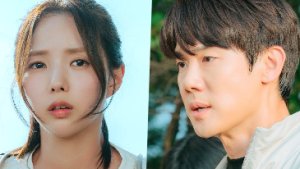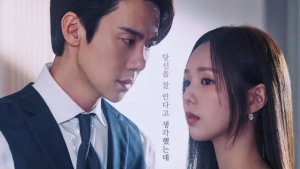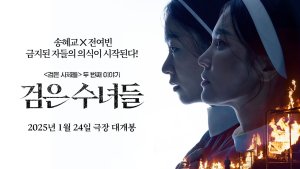 Lost in Translation: Drama Titles That Steer You in the Wrong Direction
Lost in Translation: Drama Titles That Steer You in the Wrong Direction
This article can be viewed in light/dark mode.
There are major spoilers ahead for Kawa no Hotori De and The Light in Your Eyes.
As I have watched drama, over the years I have noticed many great and not-so-great trends or themes running across them. One of the key forms of not-so-great storytelling is the characterisation, which often falls into the pit of stereotyping; be it sexist, ageist, racist or any other form.
According to the World Health Organisation, ageism refers to the stereotypes (how we think), prejudice (how we feel) and discrimination (how we act) towards others or oneself based on age (sic). Ageism is everywhere and affects everyone. Children as young as 4 years old become aware of their culture’s age stereotypes. It intersects and exacerbates other forms of disadvantage including those related to sex, race and disability.
In this article, we will analyse the representation or underrepresentation of aged people in two popular dramas. Ageist stereotypes can be identified as a complete lack of representation in the drama itself or as older folk being weaker, more foolish, stubborn or eccentric than younger characters. While this trend may not be as glaring in movies because of their varied genres and audience, I feel dramas suffer from the brunt of this attack as we watch them for a longer period and therefore notice these peculiarities more.
I'll be discussing the way older adults are portrayed by sampling two dramas in great detail: Kawa no Hotori De and The Light in Your Eyes. While one is a Japanese drama and one Korean, both deal with aged folk albeit differently. For those who haven't watched either drama or do not remember the story, let me summarise them for you.
|
Summary Kawa no Hotori De is a slice-of-life drama which follows two men, Toshi-chan and BB, who live by the banks of the Tama river. They are not particularly concerned about money and live a carefree life collecting plastic/steel cans for recycling to support themselves. The drama introduces us to a host of characters: Nao - a young actress who comes to interview the two, Pemako - a mysterious woman who shows up at BB's house, Chame-san - the leader of the residents by the river bank, Hijiri-san - referred to as Joan of Arc for the homeless, Yuko - Chame-san's daughter, and Sato-san who works for the welfare department of the municipal/ward office and is always trying to get the residents living by the banks to register themselves. Since the drama is episodic in format, each episode tells a tale with different morals loosely dealing with the themes of what constitutes a family, meaning of affluence, purpose of living, dealing with regret and freedom. And as the drama captures instances in the lives of these residents, we are treated to these allegorical truths as is mostly the case with the slice-of-life genre. Review 14 minutes in, you hear one of the titular characters say ‘Life is mostly a matter of chance’ and I think that’s also the principle behind this drama. The drama brings up the nostalgia of camping in the woods and living a simple life. And though the characters are poor and homeless, they are ‘self-sufficient homeless people' which is what the characters themselves say in episode 1. Based on a play, 'Three Sages by the Banks of the River' by Ayata and Bengal of Tokyo Kandenchi, this is a short comedy about homeless people peppered with many philosophical dialogues and interesting instances that make you contemplate life and happiness. There are no grand revelations or dramatic instances in this slice-of-life drama and the show would come across as boring or slow to first time viewers of this genre. Being contemplative in nature, it's a comedy that goes no where which is symptomatic of the episodic format. To me, this drama is like a relaxing hug after work and I appreciated it's ghetto aesthetic. The scenic backdrop of the Tama river also lent beauty to the scrap sheds which these characters call home despite them showing very little in the way of growth. No. of episodes: 6 Tags: Homeless, Miniseries |
Summary The Light in Your Eyes is a character-driven drama about Kim Hye Ja, a poor girl who accidentally travels forward in time, prematurely ageing herself as she tries to save her father from an accident. Now a bewildered septuagenarian, she realises she can no longer act as her younger self and encounters many miserable incidents on her journey to rectifying the time conundrum. We are introduced to her mom who runs a salon, dad who drove a cab but now works as a security guard because of the accident, older brother Yeong Soo - a struggling albeit jobless VJ, her friend Hyun Joo who serves in her family restaurant, her friend Sang Eun - an idol-in-training for 10 years, and her romantic interest Lee Joon Ha. On one side is her poverty-stricken family and on the other is her tragic love story with her hoobae. As the show deals with mixed storylines, the drama moves to Hye Ja's struggles as an old woman. The story is dramatic and filled with emotions to the brim. Hye Ja and the band of not-so-merry characters are constantly confronted with obstacles which they can barely if ever surmount. And with each episode that plays with our emotions, the audience is treated to some hard truths about living with regrets, dealing with consequences, price of living, friendships and societal biases towards the poor & elderly. Review The Light in Your Eyes is an emotional roller-coaster designed to make the audience heave with emotions. While there is cautious hope threaded into each episode, it only comes after a veritable bombardment of devastating instances that each character is forced to face. I mention force because the first 10 episodes were unnecessarily depressing and the number of misfortunes were highly exaggerated. This is reconfirmed after the plot-twist in the last three episodes makes the initial absolutely miserable storyline a figment of a wretched mind's imagination. This is a melodrama about the life of an unfortunate woman and the way she deals with ageing. While the drama doesn't romanticise ageing it definitely doesn't paint it in a neutral light either. It's a more about the negative aspects of societal bias, an in-your-face view of the elderly and the harsher realities that they may face due to lack of monetary or family support. You can access my subjective review here. No. of episodes: 12 Genres: Romance, Life, Drama, Melodrama Tags: Life Lesson, Family Relationship, Time Loop, Father-Daughter Relationship, Time Manipulation, Mother-Daughter Relationship, Poor Male Lead, Double Identity, Poor Female Lead, First Love |
And though it is obvious that I have a clear favourite based on my reviews, we aren't stirring up that hornet's nest in this article. Going forward, I will be referring to these dramas as KNHD and TLIYE or as their original titles respectively.
|
Age has not always been a matter of focus in dramas, with older actors being the focus mostly in family-based shows. So when I watched TLIYE just after watching KNHD, I immediately drew some parallels in the way these two dramas dealt with older folk.
Age as an instrument to tell a story
Based on the summaries, it can be seen that these are two very different dramas. In KNHD age was not the focus of the story. The drama was about homeless people whose majority happened to be old, they could have been young and we would still have a KNHD albeit a slightly different one but the same couldn't be said of TLIYE.
In TLIYE, the main character goes through age progression and becomes an older woman who is grappling with her age as her friends stay young. If she didn't become older we wouldn't have this drama at all and so, I would say the main focus did have age as a consideration in this drama.
Main Act vs an Ensemble Cast
KNHD is an amalgamation of short stories about older folk who live by the river. The independent episodes are tied together by having the main cast in all the episodes but while the main cast is present in every episode, they aren't the main act in all of them. We are introduced to new characters and their story in each episode. What I found though was that majority of these characters were older as well. Not sure if that was a conscious decision or if it just manifested organically as part of the storyline.
TLIYE on the other hand has a main act consisting of Kim Hye Ja, Lee Joon Ha/Kim Sang Hyeon and Kim Young Soo, and supporting cast including her parents and best friends. Because Hye Ja ages, we have a host of secondary characters that are older folks from the elderly care centre and while we get to explore the back stories of some of these folks the drama is primarily a melodrama about Hye Ja and the main cast remain the main act throughout the show's runtime.
Drama Intent
The intent of KNHD is to depict a day in the life of these folks and being in the slice of life genre, it is a much more lighter comedy than TLIYE. While every episode hints at underlying deeper emotions, it is more of a philosophical touch than dramatic in nature.
TLIYE on the other hand expresses the cautious hope in the eyes of an old woman despite the tragic circumstances shaping her life. Every episode teaches a harsh truth revolving around coming to terms with the more miserable aspects of a society situated predominantly in a blue-collar neighbourhood. This is a melodrama through and through.
Positive Portrayal vs Negative Portrayal
In KNHD, almost all the inhabitants of the area are sexagenarians and most do not have family obligations. Being an ensemble cast there were all sorts of character representations but the juxtaposition with a younger crowd was not as apparent. On the other hand, in TLIYE we could clearly see the comparisons between the young and old as well as how the younger crowd perceived the older character's actions or behaviour.
Due to addition of dramatic elements in a melodrama, we often see a very lopsided portrayal of the character be it positive or negative. Either Hye Ja is loved and admired by some character, or Hye Ja is ridiculed and persecuted by some character. We always get to see the character extremes in TLIYE cause that is the definition of a melodrama but I doubt whether this extreme portrayal of a character would be any different if Hye Ja was just a young lady like the rest.
On the other hand because KNHD is more like 'a day in the life of...' vlog we get to see little judgement of the character's actions. They are who they are and as most are involved in the story for that episode there is no active or passive audience that is passing judgement. The lack of perspicacity comes across as neutral portrayal since we see no derision or approval of the character's actions or behaviour. At the same time because it is a slice of life comedy, our perception of the character is only based on few incidences and as viewers we do not get the complete picture of the character unlike in a character driven melodrama.
|
Kawa no Hotori de
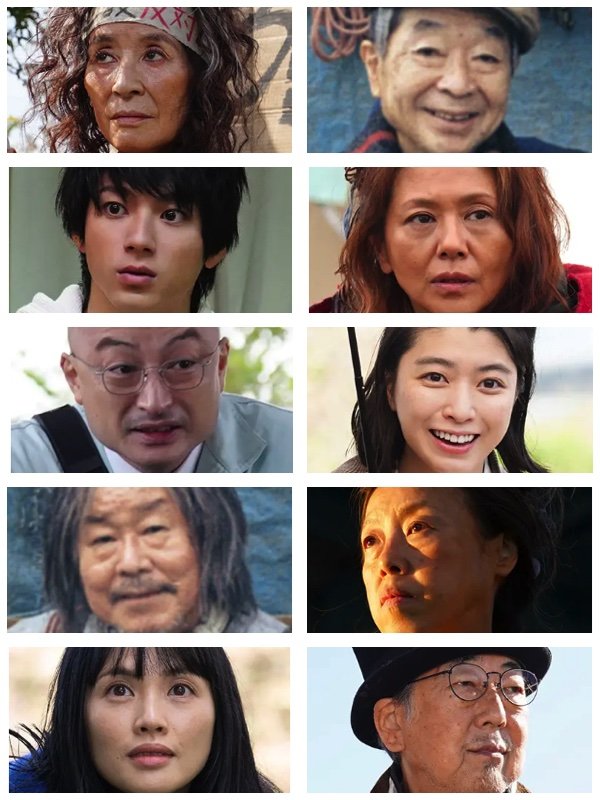 | 1. The plot set-up itself was influenced by the age of the characters. The fact that they had lived a long life before deciding to live free from familial or societal obligations was believable because of their advanced age. If it was a younger cast, the question of what compelled them to live the way they do would have to be dealt with in a totally different manner. 2. In the first episode, we have a young actress who comes to interview Toshi-chan and BB in preparation for her role. They have a lengthy interaction through the night and she ends up staying the night in Toshi-chan's room. Would the story have the same flavour if Toshi-chan was younger? Who knows what direction it would have taken. 3. There are multiple scenes in which we have Toshi-chan and BB reminiscing over their shared memories. Their camaraderie has developed over the years of spending time together. |
Their character is set with habits honed over decades. And it is this rich history that influences all their actions. It just wouldn't have been the same if they were younger characters who had majority of their lifespan ahead of them.
4. Chame-san, the leader of the residents by the riverbed, has a backstory that is full of twists. In episode 3 his daughter comes to visit him and action ensues. Needless to say, most of the guest characters would have to be changed if they were a younger cast.
In conclusion, KNHD is a situational comedy which would have different set of characters and storylines if they replaced the original aged characters with a younger cast. The lessons we would draw as viewers from this changed set up would be different but the drama could still exist albeit no longer named as 'Three sages by the river'.
The Light in Your Eyes
1. In an effort to know her body's physical limits, Hye Ja tests herself climbing stairs. We also get a refreshing response from Hye Ja when she goes to the hospital for a check-up. She is considerably ticked with the doctor when he talks about her “young-looking” 55-year-old organs. Because she is mentally a young woman in an old body we find this situation funny so we don't really know how an actual older Hye Ja would react. Needless to say, such situations would never occur if Hye Ja was young. 2. Hye Ja is scammed out of all her belongings and money when she runs away from home. Would her actions be different if she was younger? Probably not, but she might not have been scammed at all since the reason she was robbed in the first place was because the man felt she was an easy mark being an 'old lady'. This situation was a classic example of what we referred to as 'ageism' earlier. The goon stereotyped Hye Ja, was prejudiced against her and discriminated her because of her age. | 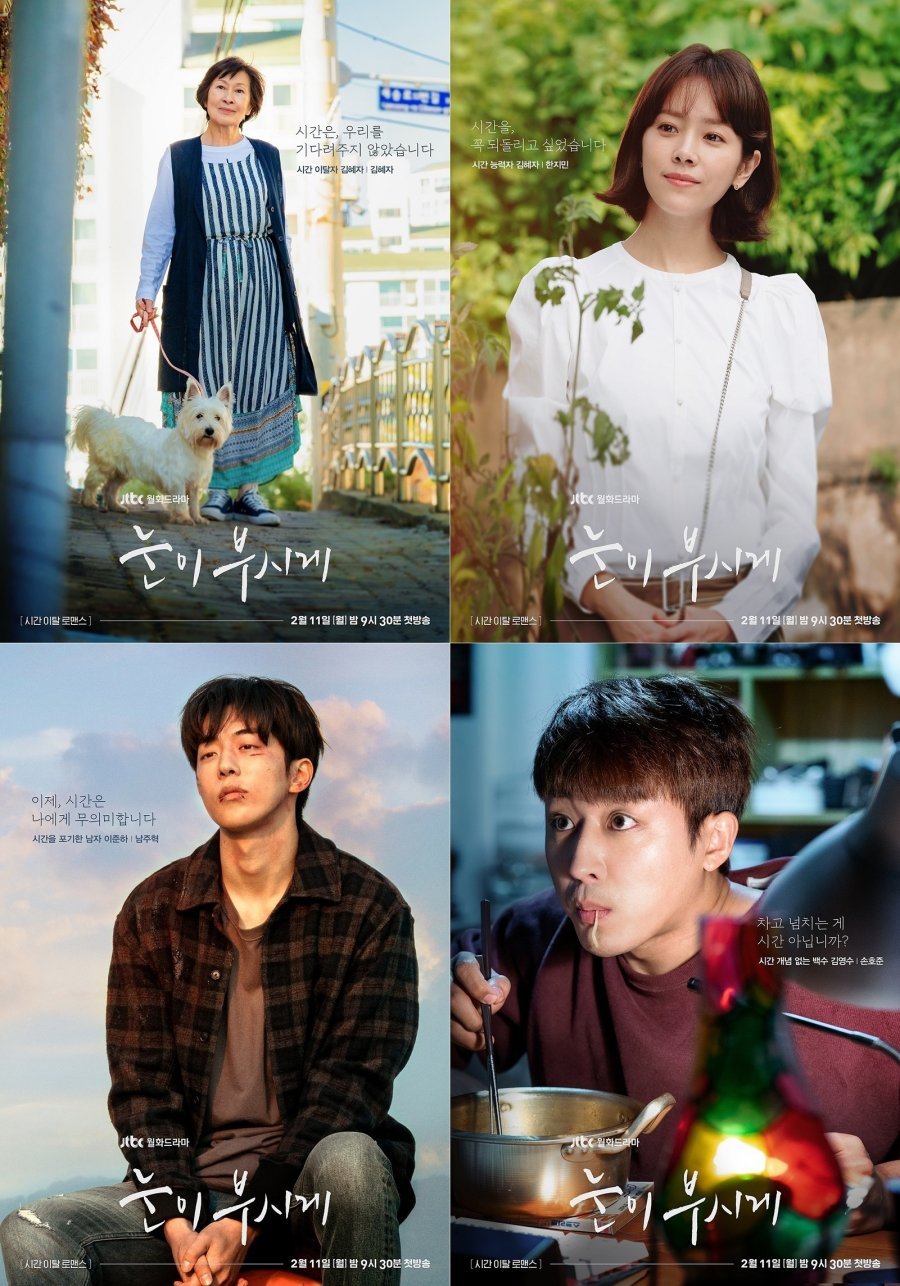 |
3. A side plot about Joon Ha or Chanel Lady as she is called wouldn't have materialised if age wasn't a factor. The way this lady reacted when she went shopping for adult diapers was extremely realistic. Then there was her reaction to learning she was left behind which lent a great adult perspective. We cried and sympathised with her circumstances. Ageism reflected in how her son treated her but there was also pragmatism and practical lessons to be learned from this story (I clearly liked this character a lot).
4. The last arc during the rescue of the remaining seniors and Joon Ha is equal parts absurd and brilliant mainly because of the group of seniors comprising the rescue team. There is ageism in the way people react to them but there is also a light hearted feeling when you see the group succeed. The story wouldn't be half as entertaining if they were young.
To summarise, we wouldn't have a TLIYE without Kim Hye Ja (the actress). There are multiple incidences throughout the drama which address the stereotypes associated with age such as stamina, mental health and societal biases which as an audience I am not used to seeing in dramas that often. While we do see how some actions are different when the character is aged due to the nature of the drama we did not get to truly see from the perspective of an older protagonist. TLIYE was a game changer in airing a the many facets of an older character that we miss watching when they are relegated as supporting characters in a drama.
|
I think the Chinese drama Octogenarian and the 90s was the first show at the top of my mind which had relatively older people as a part of the main cast. I say relatively because, while the story is about people in their 80s, the cast was in their 60s, but that's okay considering we have very few veteran actors as the main leads in a TV show.
Then there is Dear My Friends, a Korean drama I disliked, and how can we forget Navillera which took the MDL feeds by storm? And while Tenshi ni Request wo seems to have an elderly female lead, I haven't seen the Japanese drama so not sure what the story is really about. A Taiwanese show that is on my PTW list, Mom, don't do that! about a mom who decides to find love again at 60, may also be considered if you are interested in watching older chracters.
I am not sure whether to consider Hunted in this category as it does star Ye Soo Jung in a lead role but it's yet another drama I haven't watched. Never Twice is another Korean drama where the story is about the various residents living in an inn. The inn's owner, Bok Mak Rye, is an older woman but the drama is more of a slice of life ensemble cast than about a single character.
There are also quite a few shows such as Oba Acha ma, Koware Chatta no?, Family's Honor which were released before the 2010s and some such as Oshin which are way older but also render great character representation.
|
Societal perceptions change based on culture and tradition. There are many incidences in real life where persecution or ridicule of aged people has occurred but there are also situations where aged people have enacted heroic deeds. Therefore, it is difficult to make an all encompassing generic statement.
That being said, our perception as a viewer does get influenced by the perception the storyline wants us to have. For example, a drama would have us believe that most of society looks down upon aged folk as slow and stubborn but this might not be the reality. As always, the onus is on the viewers to develop their behaviours based on what is 'right' and assist young minds from getting impacted by skewed perceptions developed from watching 'entertainment/media'.
I think dramas leave us with the feelings picked up from the main character or the main characters leave us with the feelings they emote based on the direction of the drama. Either way the character's age, personality and traits manifest in their actions which in turn affect the way the story unfolds. An older character has a different take on a situation and reacts differently to stimuli as opposed to a younger character. This difference is novel in drama-land because we don't get to see such character portrayals often.
For me, KNHD and TLIYE are very different dramas and something I would probably not compare if I hadn't watched them back to back but because I did, it gave me the opportunity to think deeper about their similarities. Each drama has it's strengths and based on your inclination and mood, you could watch either one.
For people who might conform to the age stereotypes mentioned earlier, both these dramas would be a breath of fresh air. Be it positive or negative, these dramas have indeed portrayed aged folk wonderfully. We get to watch them suffer initially and then triumph over their difficulties either through realisation or coming to terms with their circumstance. While we may not agree with their mindsets, it was still refreshing to see any sort of portrayal as opposed to having them in the background as a supporting character or their character being solely defined by their relationship to the main character (such as grandfather, grandmother). I know dramas by virtue of their definition are supposed to be dramatic but if we are going to talk about stereotypes, to me the lack of representation is the biggest issue...
Some articles write themselves and some wait ages for the author to be inspired enough to write them. This one clearly falls under the latter category. It started with being a drama recap about KNHD then a comparison between KNHD and TLIYE, to what it is now. Metamorphosis and evolution are funny like that. That being said, this is the end of the article and hope you enjoyed the ride. Have you watched any drama besides the above mentioned which had sexa- or septuagenarians as main characters? How did you feel about them? Recently, there have been quite a few dramas targeting the 30 - 40 age group. Would you be interested in reading my analysis based on sampling in a similar vein as this article or a more generic tag analysis? Let me know your thoughts in the comments below! Until the next time. |
|

